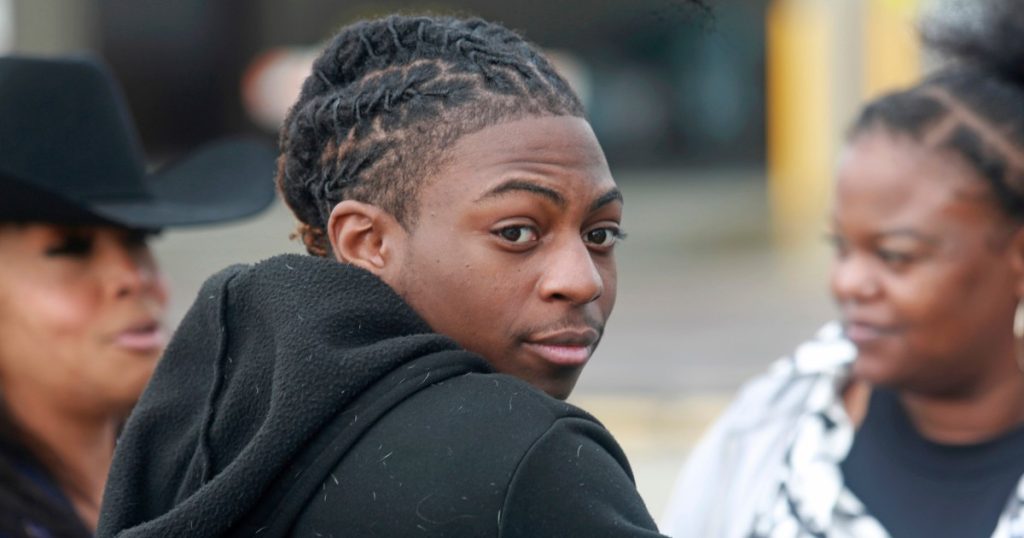A federal judge in Galveston, Texas, is considering whether to dismiss a lawsuit filed by a Black high school student, Darryl George, who has been punished by his school district for refusing to change his hairstyle. The school district, Barbers Hill, claims that George’s hair violates its dress code because it would fall below his collar, eyebrows, or earlobes when let down. George and his mother filed a federal civil rights lawsuit, alleging racial and gender discrimination by the district, the superintendent, and other officials, as well as Texas Governor Greg Abbott and Attorney General Ken Paxton. The lawsuit argues that George’s punishment violates the CROWN Act, a state law prohibiting hair discrimination based on race, as well as his First Amendment rights to free speech and expression.
George has been serving in-school suspension or attending an off-site disciplinary program for most of the school year due to his hairstyle. His attorney, Allie Booker, argued that the district’s policy is discriminatory and not race-neutral, especially since girls are allowed to have long hair while boys are not. Booker also claimed that the district was making religious exemptions for hair length but not following the CROWN Act by not offering race-based protections. The case argues that self-expression through hairstyle should be protected under the law, even if it is not strictly tied to religious belief. The attorney highlighted the importance of acceptance and equal treatment for all individuals regardless of their appearance.
Jonathan Brush, representing the school district, argued that their policy is race-neutral and compliant with workplace and military standards. He stated that different hair length restrictions for boys and girls do not amount to discrimination and insisted that George’s First Amendment rights are not being violated because his hairstyle does not convey a message to the world. Darresha George, Darryl’s mother, has emphasized the cultural and religious significance of her son’s hairstyle, which holds importance for many African Americans. The judge, U.S. District Judge Jeffrey Brown, indicated that he may dismiss some claims against certain officials, including Abbott and Paxton, and plans to issue a final ruling at a later date.
In a previous ruling in February, a state judge determined that the school district’s punishment did not violate the CROWN Act. Additionally, the school’s hair policy had previously been challenged in a federal lawsuit by two other students, one of whom returned to school after a temporary injunction granted by a federal judge. Despite the legal challenges and the ongoing lawsuit, George has faced difficulties finding summer employment and fears backlash from those who disagree with his case. Booker noted that George is feeling disheartened by these challenges but remains committed to fighting for his rights and representation in the legal system.
The lawsuit filed by Darryl George against his school district in Texas alleges racial and gender discrimination over his punishment for refusing to change his hairstyle. The case, which is being heard by a federal judge in Galveston, argues that the school’s policy is discriminatory and not race-neutral, violating George’s rights under the CROWN Act and the First Amendment. The dispute highlights the importance of acceptance and equal treatment for all individuals, regardless of their appearance or cultural practices. Darresha George, Darryl’s mother, has emphasized the cultural and religious significance of her son’s hairstyle, which has been central to the legal argument. The judge has indicated that he may dismiss some claims in the lawsuit, with a final ruling expected in the future.


